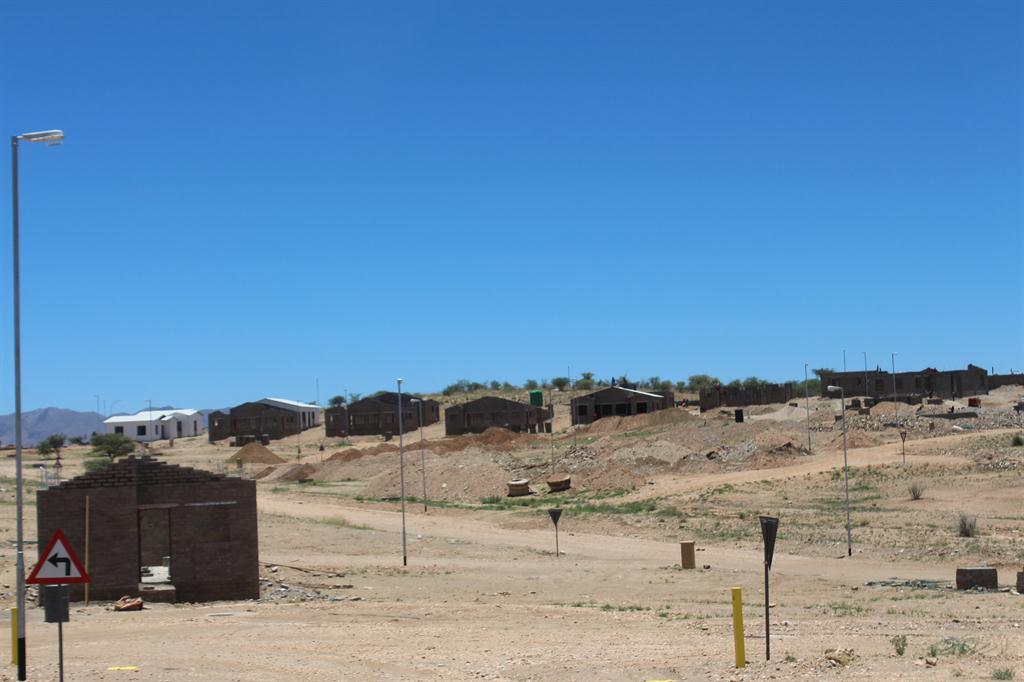Graduate contemplates shack life
Fed up with rising rental prices, a Polytechnic of Namibia graduate is contemplating setting up his own makeshift shack, if the severe lack of housing in the country is not addressed.
The 40-year-old Namibian man - Johny* - expressed disappointment with the government and the management of the City of Windhoek for failing to control and regulate housing and renting prices in the country and in the
capital.
He told Nampa on the sidelines of a City of Windhoek’s public meeting at Ella du Plessis Senior Secondary School recently that the housing and land crisis - and its exorbitant buying and renting costs - remain a big concern, especially for the young graduates.
His renting experience dates back to 2001, when he was a student at the Polytechnic.
He is still renting with members of his family.
“When I was a student, I rented an outside room (all in one - cooking and sleeping) for N$2 000.
“Due to the expansion of my family I moved on to rent a two-bedroom at a monthly cost of N$8 000,” he said.
Clearly frustrated by the housing situation, Johny said he will be forced to go to an informal settlement a put up a
shack.
He said he applied for land at the City in 2005, long before the Affirmative Repositioning campaign began last year.
His is also irked by the fact that those who applied for land via Affirmative Repositioning may possibly get land before he
does.
Former Windhoek Mayor Elaine Trepper and Rally for Democracy and Progress (RDP) councillor Tartisius /Gaiseb informed a public meeting a week ago that the housing problem is a national issue that needs urgent attention from local authorities and central government.
Trepper informed about 12 people in attendance that the City indeed has a waiting list of people who want land.
However, the lack of serviced land remains a challenge.
Trepper said as a result, a number of Windhoek residents are living in illegal shacks in most informal settlements.
“We have noted that most of the shacks are owned by the elites who are renting it to the
poor.
The very same elites who own proper houses make business by renting out their houses to foreigners while living in a shack themselves,” she
explained.
The increase of illegal shacks, she said, is caused by the high migration of people from different towns and villages around the country.
City spokesperson Lydia Amutenya told Nampa that City boundaries, and especially informal areas, are growing at an alarming pace, with an estimated growth of 10% per annum in the north-western part of Windhoek, and an overall population growth estimated at 4% per
annum.
Amutenya said the challenge of migration is mostly the high demand for municipal services, and most residents are unable to afford this due to
unemployment.
“Although the City is mandated to deliver these services effectively, it relies on its own revenue, which is composed mainly of property rate taxes and charges for providing water, electricity, refuse removal, sanitation and other services rendered to residents,” Amutenya
stressed.
She said the City mostly operates on a cost recovery basis, which means it can only render services on a sustainable basis if residents pay.
Amutenya stressed that the influx of people puts pressure on the limited available resources, as the new residents mostly settle on illegally grabbed unplanned land, yet they expect municipal
services.
“The rapid migration has resulted in the explosion of the City’s population and rapid growth, especially in the informal settlements, where the majority of our residents are living, and where cases of illegal settlements are recorded,” she
said.
This had resulted in a high demand for serviced land for housing, as well as for basic services, such as water, electricity and proper sanitation.
According to the leadership of the Teachers Union of Namibia (TUN), said a recent small survey had shown that over 200 teachers are living in corrugated shacks in the capital, due to high land and housing rental
prices.
TUN’s president Mahongora Kavihuha said the survey showed that most teachers are living in the shacks without electricity and proper
sanitation.
He said this situation makes it difficult for teachers to prepare for their teaching lessons, as they are doing so by candlelight.
Since independence, eradicating the housing shortage has been a song sung by many ministers over the years.
Kavihuha expressed disappointment that when these ministers leave office, hardly any significant improvement can be observed.
“This became a song sung without any emotions and sensitivities,” he said.
Kavihuha has described the housing or land problem issue as a “natural disaster”, and called on the government to declare it as such.
“If we do not declare the housing problem as a natural disaster today, then we are lying to ourselves,” he said.
Kavihuha said government needs to subsidise building materials for all teachers who want to build houses on their own, especially in rural areas.
He said government needs to allocate specific areas in towns for teachers only.
During the recent land delivery retreat in February, Windhoek Mayor Muesee Kazapua said the lack of housing and acute shortage of serviced plots for housing and commercial development had been bought about mainly by the lack of adequate financial resources and bureaucracy in the land delivery process.
Kazapua said the rapid urbanisation and mushrooming of informal settlements contribute to the high Windhoek population growth that has an adverse impact on planning and developmental efforts.
He said there have been calls for the City to assess and revisit its operational approach.
* - not his real name
WINDHOEK NAMPA




Comments
Namibian Sun
No comments have been left on this article